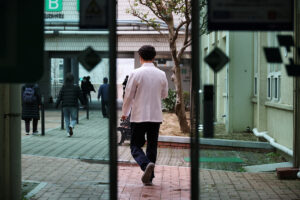
Korea doctors to keep up protests as hospitals turn patients away
SEOUL — The emergency departments at three of South Korea’s biggest hospitals were on red alert on Thursday as trainee doctors vowed to stay off the job in protest at government plans to increase medical school admissions to boost the healthcare sector.
The protest by almost two-thirds of the country’s young doctors, which began this week, has forced hospitals to turn away patients and cancel procedures, raising fears about further disruptions to the medical system should the dispute drag on.
So far, more than 8,400 doctors have joined the walkout, the health ministry said, equivalent to about 64% of the entire resident and intern doctors in South Korea.
The government has threatened to arrest the doctors leading the walkout. The physicians are protesting against a government plan to increase the number of students admitted to medical school in a bid to bolster the healthcare system of one of the world’s most rapidly ageing societies.
The doctors say the real issue is pay and working conditions. Park Dan, head of the Korea Interns and Residents Association which is taking part in the protest, said he was willing to be arrested, so that the doctors’ demands are heard.
“Everyone is angry and frustrated, so we are all leaving hospitals. Please hear our voices,” he said in a radio interview, adding they were open to dialogue if the government was ready to hear their demands.
Government officials are calling on doctors to stop their protests and prioritize their patients.
Hundreds of Seoul doctors plan to hold a rally late on Thursday in front of President Yoon Suk Yeol’s office, according to the Seoul Medical Association.
Many Koreans support the government’s plan, with a recent Gallup Korea poll showing about 76 percent of respondents in favor, regardless of political affiliation.
The protesters, however, say South Korea has enough doctors, and that the government needs to increase pay and reduce the workload, particularly in key areas such as pediatrics and emergency medicine, before recruiting more students.
Motel rooms and rental houses were fully booked near Seoul’s major hospitals by patients from the countryside whose procedures have been delayed, newspaper JoongAng Ilbo reported. — Reuters



